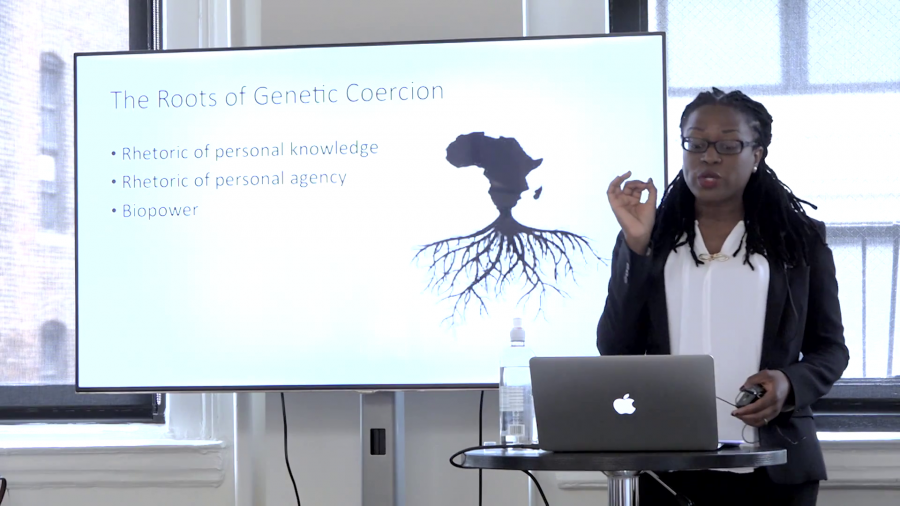I’m just going to say it, I would like to completely blow up employment classification as we know it. I do not think that defining full-time work as the place where you get benefits, and part-time work as the place where you have to fight to get a full-time job, is an appropriate way of addressing this labor market.
Data & Society
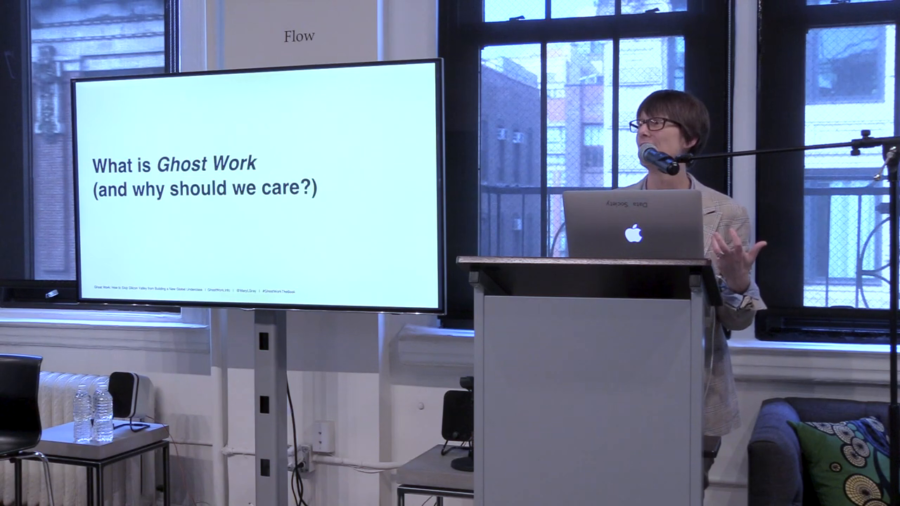
Data & Society Databite #119: Mary L. Gray on Ghost Work
presented by Dean Jansen, Mary L. Gray
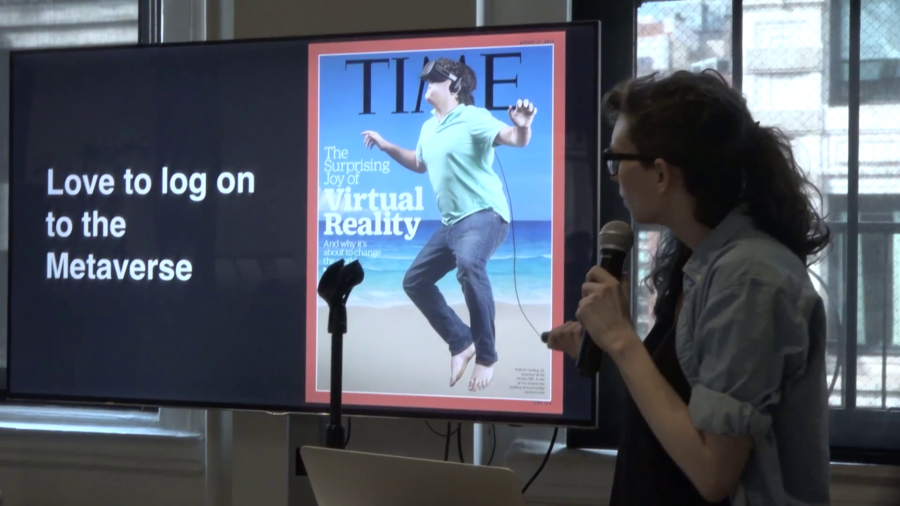
I’ve been trying to get as many weird futures on the table as possible because the truth is there are these sort of ubiquitous futures, right. Ideas about how the world should or will be that have become this sort of mainstream, dominating vernacular that’s primarily kind of about a very white Western masculine vision of the future, and it kind of colonized the ability to think about and imagine technology in the future.
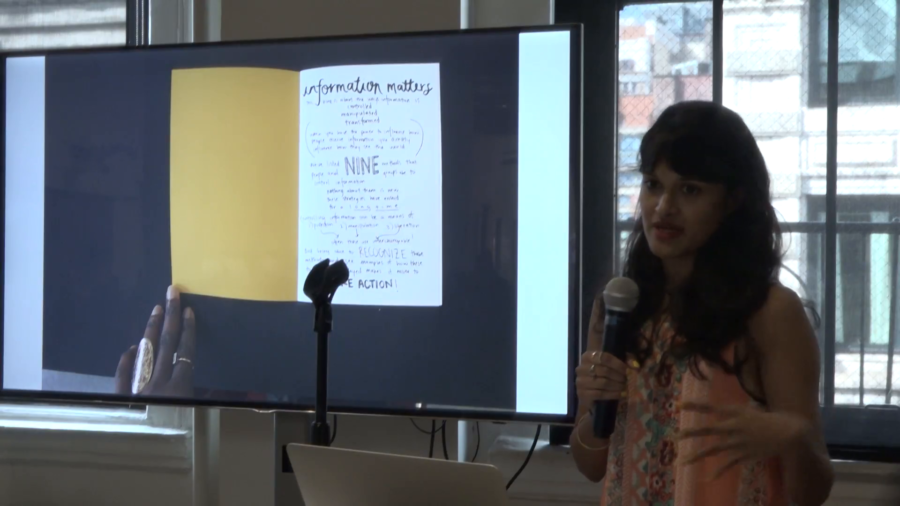
Data & Society Databite #102: Inform/Transform: Translating Critical Tech Perspectives
presented by Zara Rahman
Over the past couple of years, it feels like civil society has been almost overwhelmed with promises of how technology can suddenly magically solve the problems that we’re trying to address. Some coming from tech giants who say they’ve developed some semblance of social conscience suddenly. Some from startups who see a problem and think that technology can help without thinking about the systemic issues underlying it.
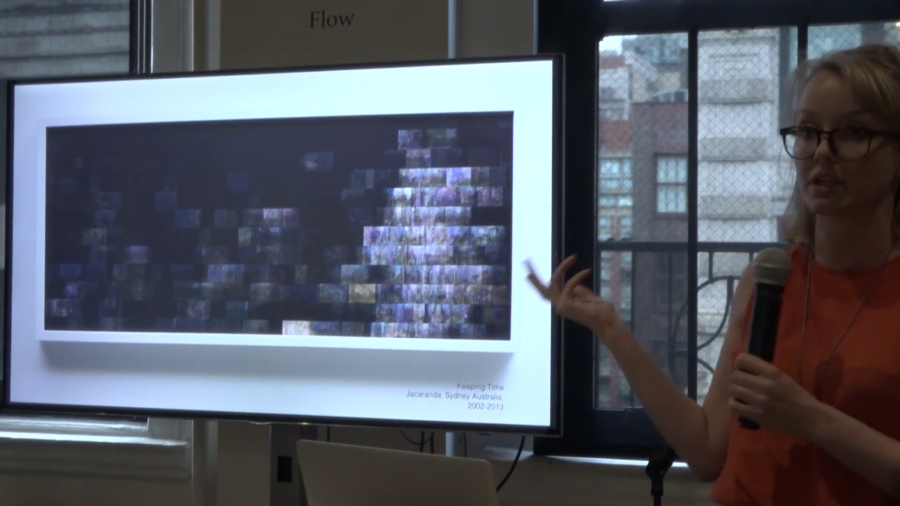
Data & Society Databite #102: The Entropy of a System
presented by Tega Brain
I’m particularly concerned with how to design from the dystopian position of the Anthropocene. How to make creative work that is simultaneously critical and generative. What does it mean to have augmented the atmosphere and the ocean’s capacity to absorb heat? And to be rapidly increasing the entropy of those systems?
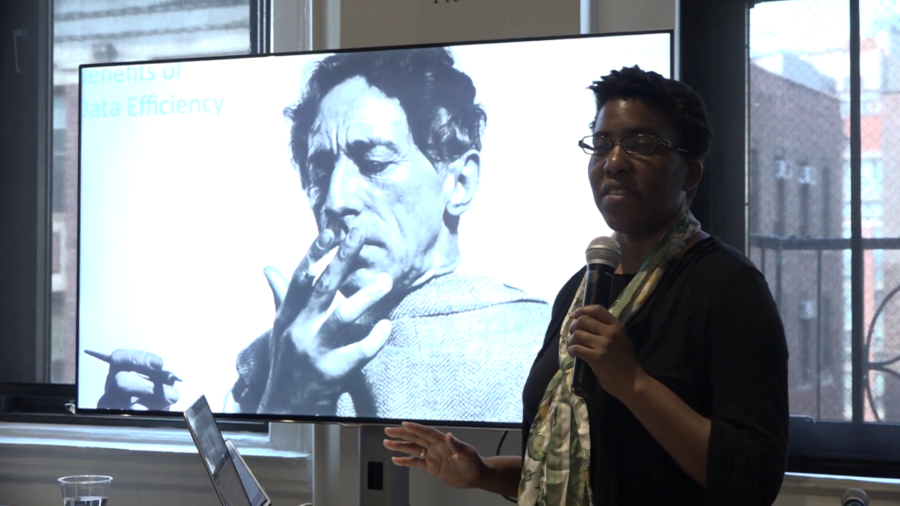
Data & Society Databite #101: Data Science Reasoning
presented by Anne L. Washington
During this year that I have been off I’ve been thinking about how to teach both people who are trained in technical parts of data science, and also policymakers, how we could have a common language. And then that way we could have these conversations so we could talk together.
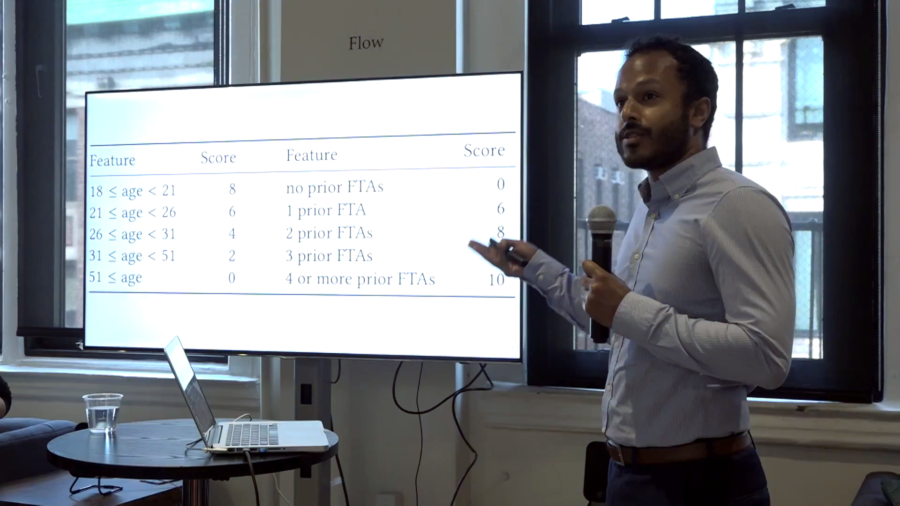
Data & Society Databite #101: Stats and the City: A Data-Driven Approach to Criminal Justice and Child Welfare
presented by Ravi Shroff
My fellowship project is to understand the development and implementation of predictive models for decision-making in city and state government. So specifically I’m interested in applying and developing statistical and computational methods to improve decision-making in police departments, in the courts, and in child welfare agencies.
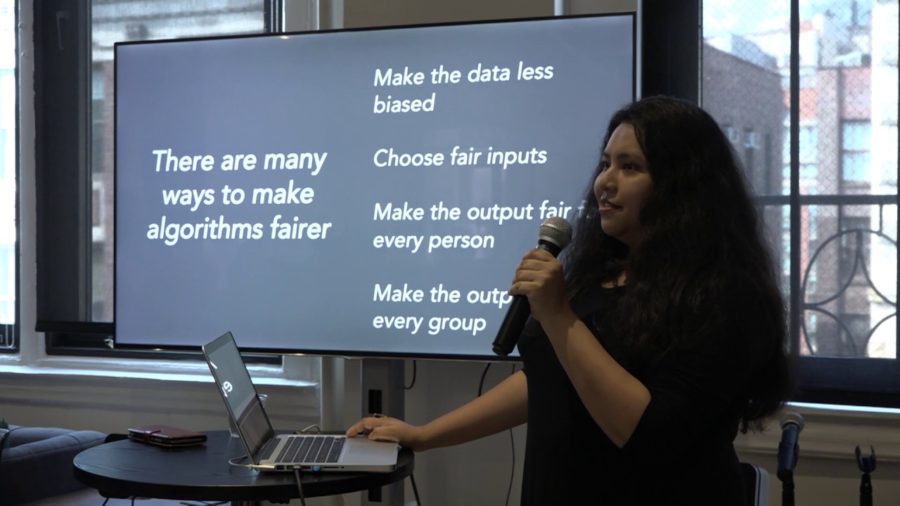
Data & Society Databite #101: Machine Learning: What’s Fair and How Do We Decide?
presented by Suchana Seth
The question is what are we doing in the industry, or what is the machine learning research community doing, to combat instances of algorithmic bias? So I think there is a certain amount of good news, and it’s the good news that I wanted to focus on in my talk today.

